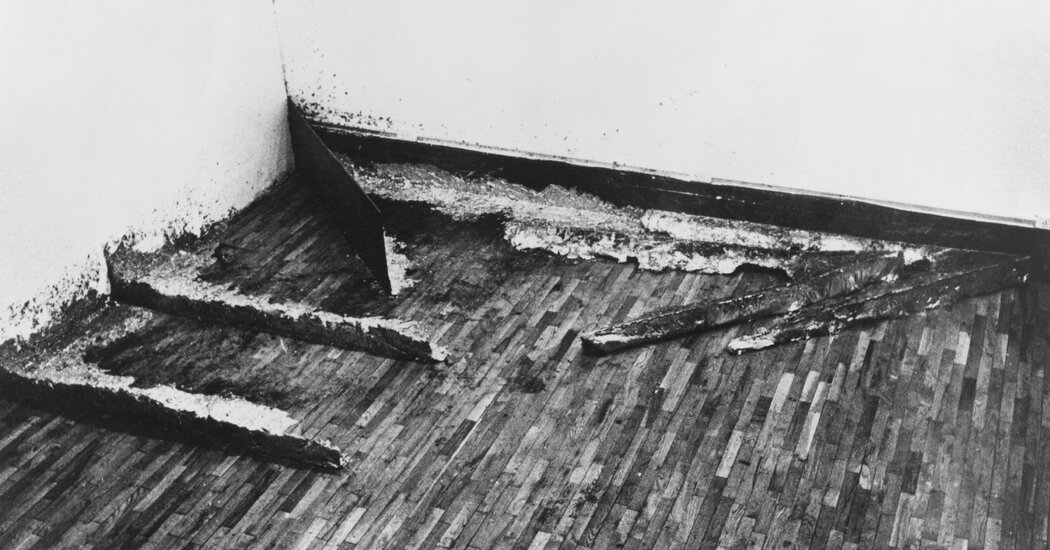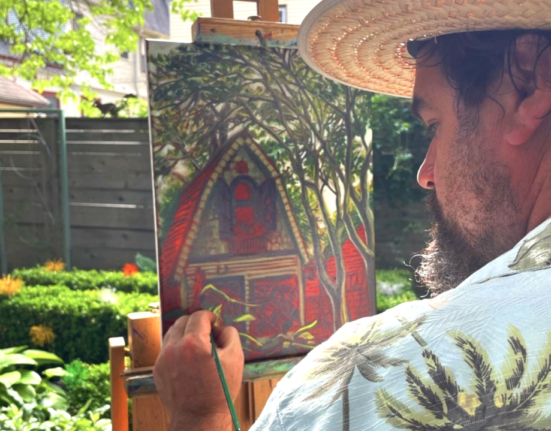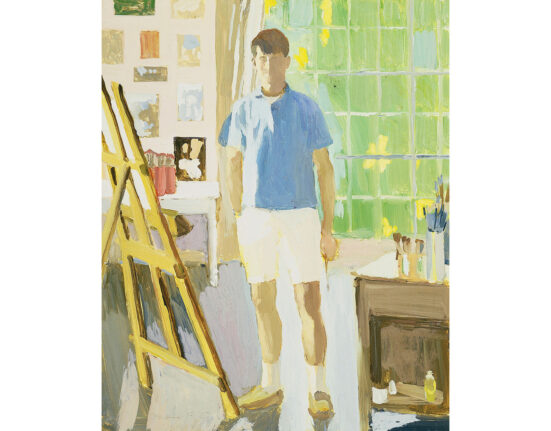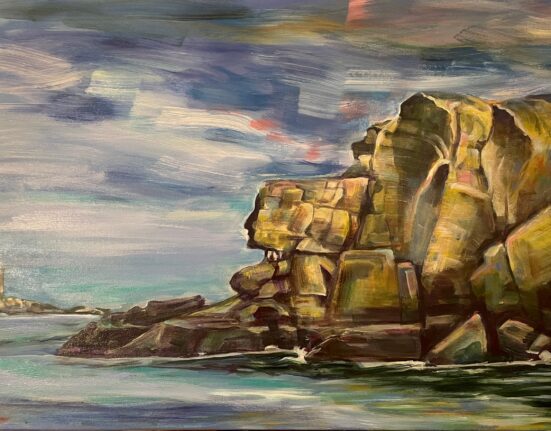Johns had recently bought a building known as the Bank, on East Houston Street, that had housed the Providence Loan Society. The main room, a double-height space, served as his studio. When Serra visited one day to select the site for the piece, he thought there wasn’t enough free wall space to accommodate a work on the scale of the Whitney piece. So instead, he did a smaller piece in a corner of a wide hallway adjacent to Johns’s studio.
Unlike the Whitney piece, which was done at night to avoid subjecting the public to noxious fumes, the Johns piece was done during the day, in the last week of 1969. Serra had an assistant, the composer Philip Glass, who had supported himself as a plumber and whom Serra credited with introducing him to the material of lead.
The splash piece, by the way, was also a cast piece — this is essential. When Serra spattered the lead, he didn’t just let it form puddles on the floor. Instead he aimed it at a steel plate, roughly two feet high and five feet long, that jutted from the bottom of the wall at an angle. After the lead cooled — it went from liquid to solid almost immediately — Serra separated it from the plate, or “uncorked it,” as he told me. He was left with a lead cast, a sculpture — a long, often rough-edged slat of metal.
Johns offered Serra a drawing in exchange for the sculpture, and Serra eventually — in 1981, more than a decade later — selected “Skin,” a tall 1975 drawing, in charcoal and oil, whose central image vaguely resembled a human figure with skeletal arms and bony hands, in a low-cut dress; it was in fact a direct imprint from Johns’s body.
It was a reminder that Johns and Serra shared, among other things, a love of casting and printing, of imprinting — whether the subject was a hand, two ale cans or the anonymous space between a wall and the floor. Which is not to say that Johns’s body print looked anything like him. “You can’t know what sex the drawing is,” Serra told me in 2019 in his loft on Duane Street. “Is it a monkey’s head, or a woman’s head, or a man’s head? It’s in my kitchen. I see it every day, and it is really nourishing.”







